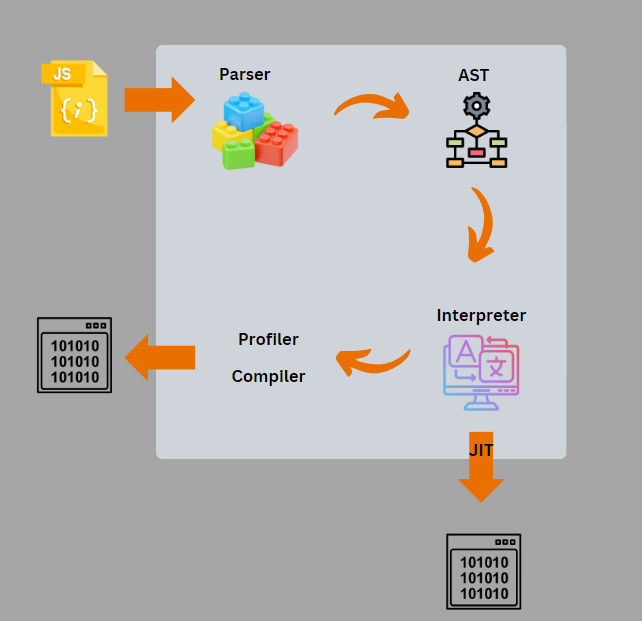A JavaScript engine is the part of the software that interprets and executes the JavaScript code. It is the core of every environment that executes JavaScript, environments like web browsers, Node.Js and others. The engine translates the JavaScript code into machine code or other lower-level code and executes it. This process allows the code to interact with the system and perform various tasks, such as manipulating the DOM in a web environment.

JavaScript engines are crucial for the performance and efficiency of JavaScript applications. Advances in engine technology, such as JIT compilation and memory management, have significantly improved the speed and responsiveness of both web and server-side JavaScript applications.
